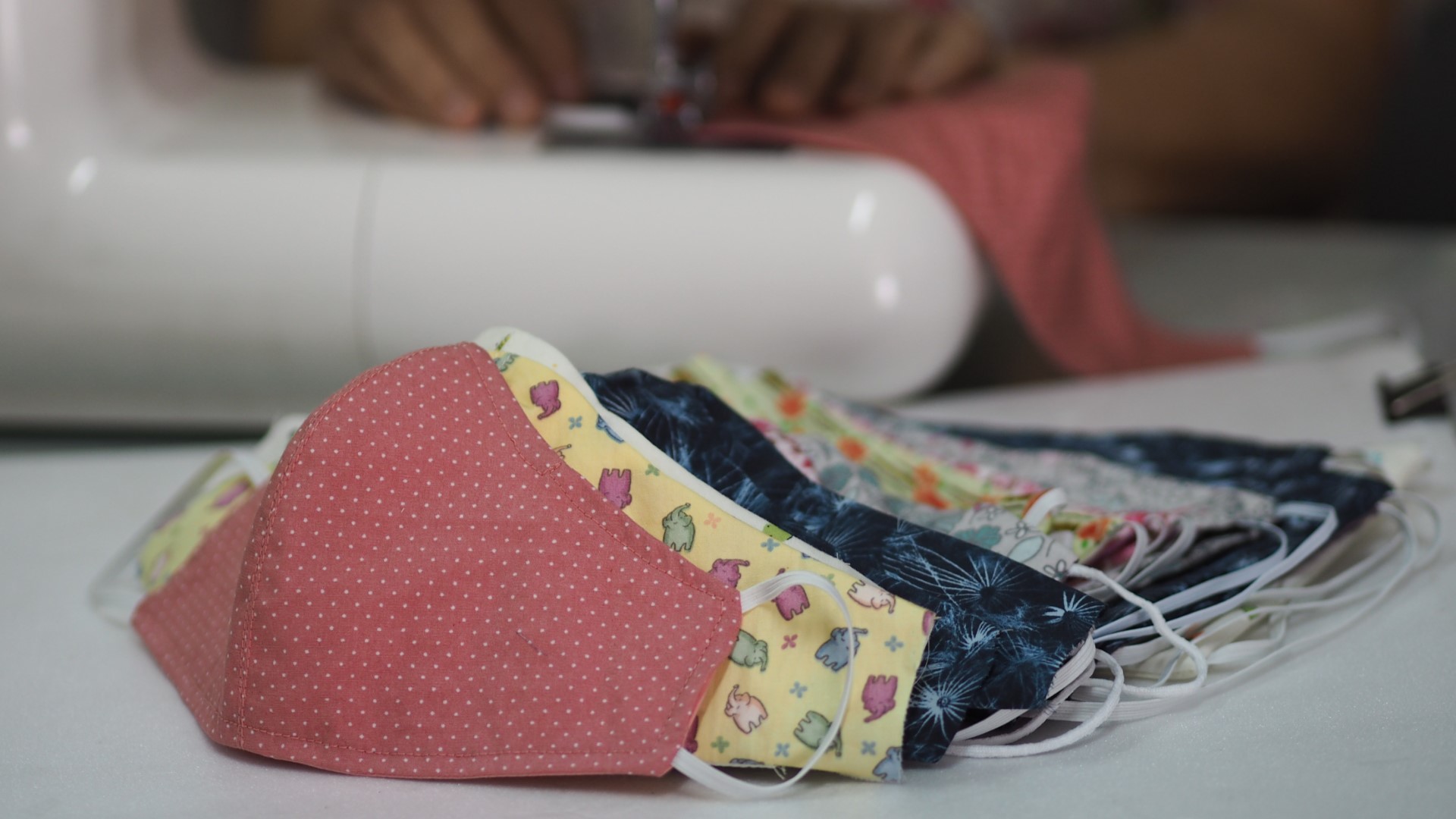TAMPA, Fla. — In the span of nearly three weeks, nearly all of us living in the United States had to change the way we live dramatically because of COVID-19 coronavirus.
We are asked to stand 6 feet apart from each other, adhere to stay-at-home orders, constantly wash our hands, and don’t touch our face. All these efforts are to help minimize the spread of the coronavirus to the masses.
Recently, the Centers for Disease Control and Prevention asked the general public to wear some sort of cloth face coverings when they’re out in public.
“The cloth masks or any masks appear to at least help reduce exposure,” said professor John Criscione, who teaches at Texas A&M University in the Biomedical Engineering Department.
“Some of the data suggest the amount of exposure of the viral load is important for severity,” he said.
As a reminder, there’s a global shortage of medical N95 masks that nurses and doctors are required to use when dealing with infectious diseases. To help hold on to their N95 masks a little longer, some medical professionals are using homemade cloth masks in combination with their medical-grade masks.
“Some nurses are using them to cover their N95 mask to extend the life of it,” said Willa Fuller, executive director of Florida Nurses Association. “They take the cloth masks home to launder and re-use them.”
The CDC said health care professionals should only wear homemade face masks as a last resort, adding if health care workers “must” use a homemade mask, they should do it in combination with face shields that cover the side of the face and extend to the chin or below.
The difference between N95 and cloth masks
When you examine the dynamics of the N95 respirator masks, they fit tightly around the face and filter out at least 95 percent of large and small airborne particles, according to the CDC.
“N95 masks are meant for airborne precaution, for much smaller particles,” said Professor Annette Bourgault, Critical Care Researcher University of Central Florida College of Nursing.
“People in the community should be concerned about droplets, which are larger in-size particles. So, we really don’t need N95 masks to go to the grocery store,” Bourgault suggested.
Keep in mind that this strain of the coronavirus is new. Since late 2019, health agencies have been studying how the virus is spread. Recent studies show most people with the coronavirus are asymptomatic, meaning they won’t show any symptoms. Whether a person is asymptomatic or pre-symptomatic, both can pass the virus onto others.
CDC, Word Health Organization and other health officials warn that the virus can spread “between people interacting in close proximity.”
Based on the evidence from new data that’s been collected, the CDC now recommends that the general public also protect themselves by covering their face with a cloth mask when they’re out in a public setting. Specifically, in places where social distancing may be hard to maintain, like the grocery. And if you live in an area where coronavirus cases are high, the CDC suggests that you put on a face mask before heading out the door.
However, it's important to note that wearing any type of face mask won’t protect you from contracting the virus. The CDC and WHO said it’s critical that people continue to practice social distancing by staying 6-feet apart from others, following the stay-at-home rules, and continue to wash your hands.
If you don’t have access to homemade cloth masks, the CDC suggests using “face coverings fashion from household items.”
People all around the world, are sharing their makeshift masks on social media. Some people are using bandanas, scarves, and even a basic cotton t-shirt.
In addition, the CDC said face coverings should not be placed on children 2-years old and younger, or anyone who has trouble breathing is unconscious, incapacitated or if they are unable to remove the mask on their own.
RELATED STORIES:
The CDC says homemade masks are a last resort. In some cases, they're the only option.

